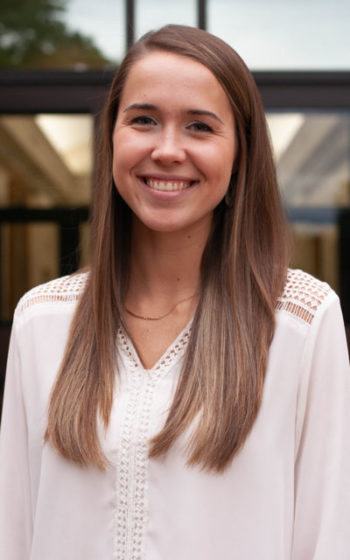While most of the BJU student population chooses one major, 53 students choose to double major, pursuing two degrees instead of only one. Some students choose two closely-related majors, while others draw from two more diverse fields.
When interviewed, several double majors gave their take on their experiences and why they chose to pursue two fields of study. Abbie Rocha, a sophomore studying early childhood education and elementary education, chose to pursue two education certificates because she wants to have flexibility to teach a variety of grades.
Alyssa Whaley, senior communication and history major, chose to major in these fields under unique circumstances. Initially, she started solely as a communication major. However, because of the extra electives that the communication program provides, Whaley opted to take some history classes as electives and realized her passion for the subject. She officially added a history major at the beginning of her junior year.
Sophomore Megan Westphal is pursuing degrees in both voice and violin performance because she could not choose between the two and thoroughly enjoys both areas of training. Though originally considering biblical counseling, she felt God leading her to the field of music and wanted to pursue both degrees that fell in line with that.
Double majoring has affected these students’ college careers. The impacts vary based on the rigor and requirements of the majors chosen. Rocha has not had much difficulty double majoring since her fields of study are similar. However, she came in with a semester of credits already completed and is taking heavy semester loads to finish in four years.
Despite this, she has to work to maintain a balance between academic and social life. Through her involvement in both majors, she enjoys the opportunity she has to interact with more education majors than she would have had she chosen only one major.
Whaley has enjoyed getting to know more people, particularly professors she would not have come in contact with otherwise, through studying both communication and history. At times, she has come across challenges with scheduling, as some history classes are only offered one out of the two semesters of every academic year.
One class that Whaley took and thoroughly enjoyed was a three-credit communication trip to England and Scotland. During this trip, she was able to combine her passions for both communication and history, learning about great authors as well as visiting historical sites. For Westphal, her greatest obstacle in pursuing two degrees has been keeping up with her busy schedule. Between practice hours and rehearsals, investing in and spending time with other people can be difficult.
However, Westphal makes this a priority. Because of both her skill and the experience she has gained in multiple musical fields, Westphal has gained exposure to multiple service and performance opportunities at BJU. She has served through music at a nursing home and used her musical skills on a mission trip to Utah this summer.
Last year, she played her violin in the pit for Titanic. This year, she is singing in an opera. Westphal said, “It’s been rewarding to give people the gift of music in multiple ways and make a difference in their lives through music.”
Double majoring may also lead to unique plans after college. Rocha plans to go on the mission field. Though she does not know the exact location yet, she has confidence that God has called her to ministering in this way, and she plans to use her degrees for His glory.
Whaley, scheduled to graduate this December, will continue to work at Thomas, Fisher, Sinclair & Edwards, a law firm in Greenville. She anticipates working there for a few more years and hopes to one day have a career in event planning. Westphal is not sure what she wants to do with her degrees yet, but knows that she wants to serve Christ. She may open her own music studio, join a short-term evangelistic team or pursue music therapy.
Ultimately, while double majoring is not an easy endeavor, it serves as a unique journey and provides students with more experiences and career opportunities, rendering their college years even more fruitful.

























































